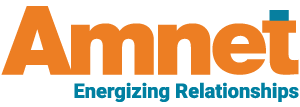In the fast-changing and diverse book publishing environment, rights and permissions are among the key aspects that determine how a book can be replicated, disseminated, and translated into other formats and languages or adapted for different regions. It is important for authors, publishers, rights managers, and employees responsible for the management of rights to have a thorough understanding of the related terms and conditions, as they are a critical part of the legal, financial, and operational aspects of using copyrighted content in publishing.
What Are Publishing Rights?
At the core of publishing is the concept of rights, which refers to the legal authority granted by an author or their representative to a publisher for the reproduction, distribution, and sale of a work. Such rights are typically defined in a contract between the author and publisher, and they specify the terms of the agreement, regarding where, how, and in what format the work can be published or reproduced.
In the case of academic publishing, licensing is of considerable importance, owing to the concerns and sensitivities of academia and the need for due permissions clearance. Authors and publishers typically require permission to reproduce third-party content, whether in text or in illustration form or otherwise. Exceptions include content available in the public domain or under fair use policy. However, thorough research for permission status should be performed before any content is reproduced verbatim without seeking related rights. Seeking the copyright holder’s permission also applies to the use of materials that pertain to creations such as photographs, maps, or charts in publishing. Obtaining permissions in writing can be a tiresome and time-consuming process, but it is critical to secure necessary permissions to reproduce copyrighted content. This helps the publisher avoid expensive litigation that may arise due to the violation of copyright laws.
To sum up, protocols relating to rights and permissions ensure that copyright holders are paid for their creations, wherever applicable, and prohibit the unauthorized use of an author’s material in publishing. It is important to recognize that without effective rights and permissions management, both the publisher and authors using third-party content missing the necessary permissions face the possibility of being sued, losing revenue, and incurring considerable damage to their reputations.
Rights and Permissions—Legal Rights, Piracy, and Implications of Copyright Infringement
The legal framework of copyright is extensive, and unauthorized use of copyrighted content involves significant risks. Copyright gives individuals the legal right over the use of their work by denying the public the automatic right to use any production they come across. Copyright infringement—for example, the distribution or reproduction of content without the necessary permissions from copyright owners—may lead to a range of legal repercussions, such as legal proceedings; fines; and often, the obliteration of such content.
Piracy is one of the greatest threats in the world of publishing; it can be digital or physical. It refers to the copying and distribution of material that could have been sold in the market by the author or owner of the material. With an increase in access to the internet, the volume of digital content has increased globally, and, as a result, piracy of content is on the rise as well, including the distribution and download of pirated eBooks, articles, and audiobooks.
According to data shared with the Association of American Publishers by several of its members two years ago, US publishers across all categories lose between $80 million and $100 million each year due to piracy. The Rob Report reveals that despite a 150 percent surge in subscription revenue since the pandemic, over 51 percent of media consumers in India still turn to pirated sources for content.
Disputes related to rights and piracy are also increasingly being brought to court. Pertinently, mitigating these risks through effective rights and permissions management has never been as important for publishers.
For this reason, publishers have no option but to undertake the requisite measures and conduct due diligence to reduce the related legal risks and safeguard the value of published works through the necessary rights and permissions. The following guidelines can help streamline the process and reduce the likelihood of costly legal disputes:
- Obtaining permissions can take considerable time, because often, a string of rights contracts depends on agreements of different formats and language translations. Write to copyright holders early in the publication process, ideally once the manuscript is ready for production, to avoid a situation where publication is delayed due to the absence of the necessary rights.
- Some copyrighted assets do not require permission but may need appropriate attribution, if the content is available in the public domain or if use that will be made of the said content falls under fair use. This, of course, involves an intricate understanding of the associated legal aspects, and one needs to evaluate the terms of usage before reproducing such content. If there is any confusion about the permission status of a content, always choose to be on the safer side; write to the copyright holder or relevant contacts, and get their confirmation or consent as necessary. Typically, rights and permissions specialists are aware of the aspects relating to permission status.
- The rights agreement should be clear and specific. What are the territories, formats, and duration that the use is to cover? Set down the terms of financial aspects, such as royalties and licensing fees, to avoid related hassles and legal issues later. It is advisable to utilize the services of a specialist or legal adviser to review the relevant terms and conditions.
- Given the huge volumes of content available online and in print today, some of the rights management platforms used by publishers today manage permissions. Several of these platforms facilitate negotiation, paperwork, and the management of rights contracts.
- Documentation of all communication, agreements, and payments related to rights and permissions should be filed diligently and shared with necessary stakeholders. Following due protocols and filing necessary documentation will help tackle legal claims should any arise in the future.
Why Amnet for Rights and Permissions Management?
Amnet ContentSource is a leading provider of editorial and production services, offering specialized support for managing rights and permissions across various publishing segments, including educational publishing. Our team’s expertise in handling complex rights negotiations ensures that all content is cleared for publication with the necessary permissions, mitigating the risks associated with copyright infringement. For a quick glimpse into Amnet’s expertise in handling rights and permissions assignments, please refer to the case study “How Amnet Helped Establish the R&P Workflow for Assessments for a Leading Publisher of Higher Education Textbooks.”
Conclusion
Aspects such as rights and permissions are founding pillars in the publishing business. And as piracy rates rise in the global publishing industry, coupled with stronger enforcement of copyright laws, the related deals and negotiations have never been as important as they are today. By knowing the subtleties in copyright, promoting the guidelines of safe rights management, and collaborating with professional service providers for rights and permissions services, publishers and authors may protect their works and sell them on fair terms.
Amnet’s team of rights and permissions specialists is available to assist publishers with rights and permissions management, from researching the permission status of text, images, videos, and so on to negotiating with copyright holders to secure the necessary permissions, so your work can reach its global audience without legal risks or delays. With our support, you can focus on what matters to you the most—creating, acquiring, and sharing great content—while ensuring due diligence for copyrighted material.
About Amnet
With over 24 years of experience, Amnet provides traditional and digital publishing solutions, including eLearning, content development, peer review management, editorial, project management, production, accessibility, and technology, for clients worldwide.
Source:





